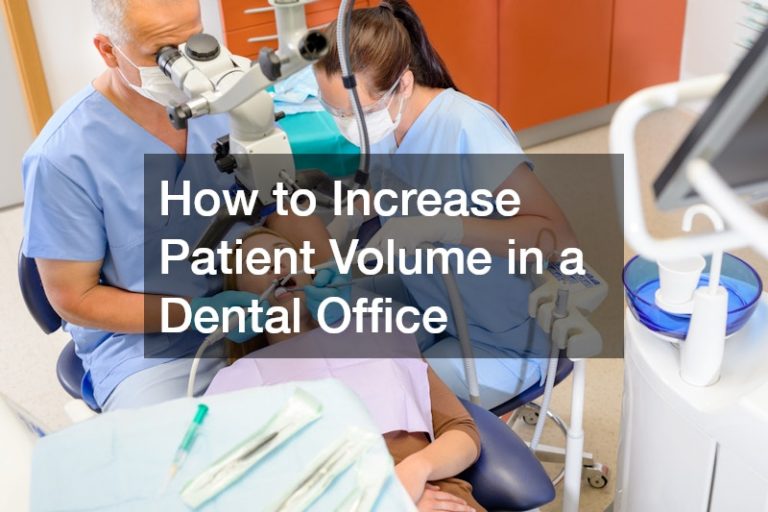What Causes TMJ Flare Ups? A Guide for Chronic Pain Sufferers
Temporomandibular Joint Disorder (TMJ or TMD) is a complex condition affecting the jaw joint and muscles controlling jaw movement. For those living with TMJ, flare ups can be sudden, painful, and frustrating, impacting daily life, eating, speaking, and even sleeping. Understanding what causes TMJ flare ups is crucial for managing the disorder effectively and minimizing discomfort.
If you’re experiencing jaw pain, clicking sounds, headaches, or facial discomfort and suspect TMJ might be the cause, this guide is for you. We’ll explore the common triggers of TMJ flare ups, symptoms to watch for, and practical ways to reduce their frequency and severity.
What Exactly is TMJ and Why Do Flare Ups Occur?
Before diving into causes, it helps to understand the basics. The temporomandibular joints connect your lower jaw (mandible) to your skull, allowing movements necessary for chewing, talking, and yawning. TMJ disorder happens when these joints or the surrounding muscles become inflamed, strained, or misaligned.
TMJ flare ups are periods when symptoms—such as jaw pain, stiffness, or headaches—suddenly worsen. These episodes can last from hours to days or even weeks, interfering with normal activities and overall quality of life.
Flare ups are often unpredictable, but many patients notice patterns or specific triggers that provoke their symptoms. By identifying these triggers, you can take proactive steps to reduce the frequency and intensity of flare ups.
What Causes TMJ Flare Ups? Understanding the Common Triggers
TMJ flare ups are usually caused by a combination of physical, emotional, and environmental factors. Recognizing these causes can empower sufferers to better manage their symptoms and seek appropriate treatment.
1. Jaw Overuse and Muscle Strain
One of the most common causes of TMJ flare ups is overusing the jaw muscles. Activities like excessive chewing (gum, tough foods), teeth grinding (bruxism), or clenching can put a lot of pressure on the joint.
- Chewing gum or tough foods for extended periods
- Biting nails or chewing on pens/pencils
- Grinding teeth at night or during stressful moments
- Clenching jaw muscles unconsciously
The strain causes inflammation and muscle fatigue, leading to increased pain and stiffness during flare ups.
2. Stress and Emotional Factors

Stress plays a surprisingly large role in TMJ symptoms. When stressed or anxious, many people subconsciously clench their jaw or grind their teeth, worsening TMJ symptoms.
Emotional stress also causes muscle tension throughout the body, including the face and neck, which can aggravate the TMJ area.
3. Poor Posture and Neck Alignment
Believe it or not, your posture can influence your TMJ health. Forward head posture (commonly caused by long hours at computers or mobile devices) strains the neck and jaw muscles.
When the neck is misaligned, it changes the way your jaw rests and moves, contributing to flare ups.
How Does Diet Affect TMJ Flare Ups?
Diet is often overlooked but can significantly impact TMJ symptoms. Certain foods and eating habits place extra stress on the jaw joint or muscles.
Foods That May Cause TMJ Flare Ups
- Hard, crunchy foods (nuts, raw vegetables, tough meats)
- Chewy foods (bagels, steak, licorice)
- Sticky foods (caramel, taffy)
- Very cold or hot foods (which can irritate sensitive joints)
Eating quickly or taking large bites can also overwork your jaw muscles.
Tips for TMJ-Friendly Eating
- Choose soft, easy-to-chew foods like yogurt, mashed potatoes, smoothies, or soups.
- Cut food into smaller pieces.
- Avoid chewing gum or sucking on hard candies.
- Eat slowly and mindfully.
Can Hormonal Changes Trigger TMJ Flare Ups?
Emerging research suggests that hormones may influence TMJ symptoms, especially in women. Many women report worsening symptoms around their menstrual cycle, pregnancy, or menopause.
Estrogen receptors are found in the TMJ area, which might explain increased sensitivity or inflammation during hormonal fluctuations.
What You Should Know:
- Women are more prone to TMJ disorders than men.
- Hormonal changes can increase joint laxity, leading to instability and pain.
- Tracking symptoms alongside menstrual cycles may help identify hormonal triggers.
What Role Does Sleep Play in TMJ Flare Ups?
Sleep quality and position are critical to managing TMJ symptoms. Poor sleep can increase pain sensitivity and muscle tension, worsening flare ups.
Sleep-Related Causes of TMJ Flare Ups
- Teeth grinding or clenching during sleep (sleep bruxism)
- Sleeping on your stomach or with your jaw pressed against a pillow
- Insufficient rest or interrupted sleep patterns
Tips for Better TMJ-Friendly Sleep
- Use a supportive pillow that keeps your head and neck aligned.
- Try to sleep on your back if possible.
- Consult a dentist about a custom night guard to reduce teeth grinding.
- Practice relaxation techniques before bed to reduce muscle tension.
How Do Injuries or Trauma Cause TMJ Flare Ups?
Physical trauma or injuries to the face, jaw, or head can lead to TMJ dysfunction or trigger flare ups. This could include:
- Whiplash from car accidents
- Direct blows or impacts to the jaw or face
- Dental procedures that strain the jaw muscles
Injuries can cause inflammation, joint misalignment, or muscle damage, all contributing to painful flare ups.
Can Medical Conditions Cause TMJ Flare Ups?
Sometimes TMJ symptoms can be linked to underlying medical conditions, which can worsen or trigger flare ups.
Examples Include:
- Arthritis (especially osteoarthritis or rheumatoid arthritis affecting the jaw joint)
- Fibromyalgia (which causes widespread pain and muscle tenderness)
- Chronic migraines or tension headaches
- Sinus infections or allergies causing referred pain
If you suspect a medical condition is contributing to your TMJ pain, it’s important to discuss this with your healthcare provider.
What Are the Most Common Symptoms During TMJ Flare Ups?
Recognizing flare up symptoms can help you catch and manage episodes early.
Common TMJ Flare Up Symptoms:
- Sharp or dull pain around the jaw joint, ear, or face
- Jaw stiffness or difficulty opening/closing the mouth
- Clicking, popping, or grinding sounds in the jaw
- Headaches, neck pain, or earaches
- Facial muscle tenderness or swelling
How Can You Manage or Prevent TMJ Flare Ups?
While TMJ can be chronic, many sufferers find relief by adopting lifestyle changes and self-care techniques.
Effective Management Tips:
- Jaw Rest: Avoid chewing gum, hard foods, and non-essential jaw movements.
- Stress Reduction: Practice meditation, yoga, or deep breathing exercises.
- Apply Heat or Cold: Use warm compresses or ice packs to relieve muscle pain.
- Correct Posture: Maintain proper head and neck alignment throughout the day.
- Use a Mouthguard: For nighttime grinding, a custom dental guard can protect your joints.
- Stay Hydrated: Drinking water helps keep muscles and joints lubricated.
- Physical Therapy: Targeted exercises can strengthen and relax jaw muscles.
- Over-the-Counter Pain Relief: NSAIDs like ibuprofen can reduce inflammation during flare ups.
When Should You See a Doctor About TMJ Flare Ups?

If TMJ symptoms are severe, persistent, or worsening despite self-care, professional evaluation is essential.
Consult a Healthcare Provider If:
- You experience limited jaw movement or locking
- Pain radiates to your neck, shoulders, or head frequently
- Symptoms interfere with eating or speaking
- You notice swelling or signs of infection around the joint
- Over-the-counter medications don’t relieve pain
A dentist or TMJ specialist can recommend treatments such as physical therapy, medication, or in rare cases, surgery.
How Does Teeth Grinding Contribute to TMJ Flare Ups?
Teeth grinding, also known as bruxism, is a major contributor to TMJ flare ups. Many people grind their teeth unconsciously, especially during sleep or periods of high stress. This repeated grinding puts immense pressure on the temporomandibular joint and surrounding muscles, causing inflammation, soreness, and joint irritation.
Over time, the constant grinding can lead to muscle fatigue, joint wear, and worsening symptoms during flare ups. Bruxism can also damage teeth, creating further complications. If you notice jaw pain accompanied by worn or cracked teeth, it’s important to consult a dentist who may recommend a custom night guard or stress management techniques to reduce grinding and minimize TMJ flare ups.
Can Weather Changes Trigger TMJ Flare Ups?
Many TMJ sufferers report that changes in weather or barometric pressure seem to influence their symptoms. Although scientific evidence is limited, fluctuating weather conditions—such as cold temperatures, high humidity, or sudden shifts in atmospheric pressure—can affect joint tissues and increase pain sensitivity.
Cold weather, in particular, may cause muscles to tighten and joints to stiffen, making TMJ flare ups more likely. For some, seasonal changes bring additional stress or lifestyle shifts that indirectly worsen symptoms. To combat weather-related flare ups, dressing warmly, using heat packs, and maintaining good overall joint health during colder months can help reduce discomfort.
How Can Physical Therapy Help Prevent TMJ Flare Ups?
Physical therapy is an effective way to manage and prevent TMJ flare ups by targeting the muscles and joints involved in jaw movement. A trained therapist can teach you specific exercises to strengthen weak muscles, improve jaw mobility, and reduce tension. Therapy may include gentle stretching, massage, posture correction, and techniques to relax tight muscles around the jaw and neck.
Over time, these interventions help stabilize the joint, reduce inflammation, and prevent muscle strain that often triggers flare ups. Physical therapy can be especially beneficial for people who suffer from chronic TMJ pain or those whose flare ups are linked to poor posture or muscle imbalances.
Final Thoughts
TMJ flare ups can stem from various causes including jaw overuse, stress, posture problems, diet, hormonal changes, injuries, and underlying health conditions. For chronic pain sufferers, understanding these triggers is the first step in managing symptoms and improving quality of life.
By identifying your personal flare up causes, practicing jaw-friendly habits, managing stress, and seeking professional care when needed, you can reduce the frequency and severity of TMJ flare ups and regain control over your jaw health.


